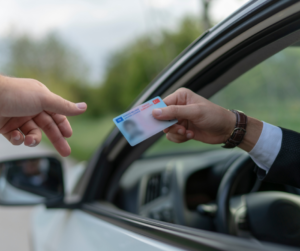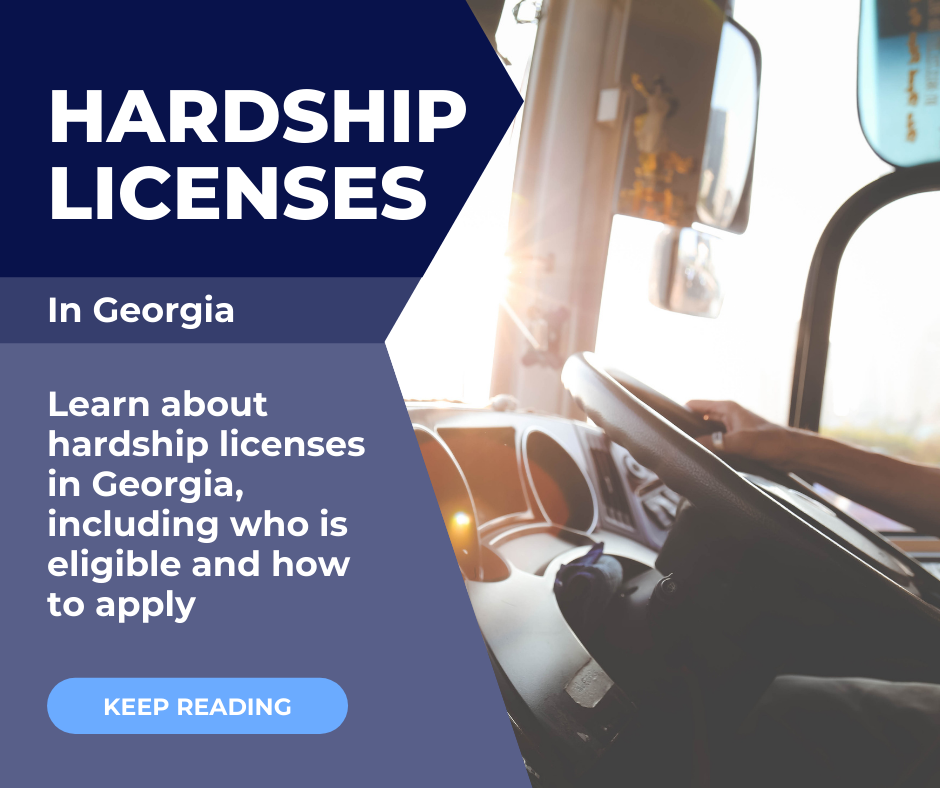After a person receives several convictions for certain serious driving offenses, the Department of Driver Services (DDS) deems them a “habitual violator” and will revoke the person’s license. License revocation is much more severe than license suspension, and it lasts for much longer.
In this blog post, you will learn about the offenses that subject you to a Habitual Violator license revocation. You’ll also learn about Georgia probationary licenses, or “hardship licenses,” which can get you back on the road faster after a driver’s license revocation.
What offenses make a person subject to a Habitual Violator designation?
Not all traffic offenses subject a person to a “habitual violator” designation. The Georgia legislature deems certain crimes more serious than others and has decided that they demand harsher penalties, especially for repeat violators.
These offenses include:
- Vehicular homicide,
- Any felony during which a motor vehicle is used,
- Hit and run,
- Leaving the scene of an accident,
- Racing,
- Fleeing or attempting to elude an officer,
- Operating a motor vehicle with a revoked, canceled, or suspended registration,
- Reckless stunt driving,
- DUI, and
- Serious injury by vehicle.
It’s important to note that you do not have to commit the same offense three times to risk being deemed a habitual violator. For instance, you may have one conviction for racing, one for reckless stunt driving, and one for leaving the scene of an accident. If all of these offenses occur within five (5) years, DDS will designate you a Habitual Violator.
Timing of the Offenses
To be deemed a “habitual violator,” you must have committed three offenses within five years. DDS calculates this five-year period based on arrest dates, not conviction dates.
This timing requirement can be significant because sometimes cases take a long time to go to trial in Georgia. This was especially true from 2020 to 2022 (during the pandemic and shutdown).
License Revocation
After your third conviction in five (5) years, DDS considers you a “habitual violator” and will revoke your license. In general, revocations last for five (5) years.
Once DDS revokes your license under this law, you may not apply for a new license until:
- Five years from the date when you surrendered your license after being declared a habitual violator,
- Five years from sentencing for the offense that resulted in license revocation,
- Five years from the date when DDS processed the citation or conviction, minus the amount of time that elapsed between an in-court license surrender and the date DDS receives the license.
You may apply for a new license at the earliest of these three dates.
In rare cases, DDS may revoke a person’s license if it believes that they are an unsafe driver due to sickness, mental or physical disability, or addiction to alcohol or drugs. This determination can be based on a recommendation by a judge or prosecutor. In these situations, DDS may reinstate the person’s license once the reason for the revocation (for example, the person’s illness) is no longer an issue.
How (and When) to Apply for a Hardship License
If DDS revokes your license for being a “habitual violator,” you may apply for a probationary license after two (2) years. These probationary licenses are sometimes called “hardship” licenses. You must meet many requirements to apply for a probationary license. I recommend speaking to a Georgia Traffic Court Attorney to help guide you through this process. 
To apply for a hardship license:
- You must have no convictions or pleas of “no contest” for violating traffic laws during the two years leading up to the application for the probationary license.
- Your conviction did not involve causing the death or injury of any individual while violating Georgia traffic laws.
- You must complete a defensive driving course or DUI Alcohol or Drug Use Risk Reduction Program.
- If your conviction was for DUI, you must sign an affidavit declaring that you do not excessively use alcohol or illegally use drugs.
- You must submit proof of financial responsibility.
- You must pay a fee of $210 (if paid in person) or $200 (if paid by mail).
- You must show that DDS’ refusal to grant a probationary license would cause extreme hardship.
Note that DDS considers pleas of “no contest” (nolo contendere) to be convictions for purposes of this law.
What does “Extreme Hardship” mean?
Georgia law defines “extreme hardship” as an inability to obtain transportation. Therefore, without a probationary license, you cannot:
- Get to work or perform the regular duties of your job,
- Attend doctor’s appointments or fill prescriptions,
- Attend college or school where you are enrolled,
- Attend regular sessions of drug or alcohol support groups (ex. Alcoholics Anonymous),
- Attend court-ordered driver education or improvement school or alcohol or drug treatment program approved by the court.
Conditions and Limitations of a Hardship License
Because a hardship license is considered probationary, the State may limit what you can do with it. You may be limited to driving only to specific locations, taking certain routes, and driving at certain times. You may also be limited to specific vehicles.
Failure to abide by the limitations of your probationary license is a misdemeanor.
Furthermore, committing a serious traffic violation while on a probationary license is a felony. That means that you would be facing, at minimum, a one-year sentence in jail or on probation, plus a fine of at least $1,000. Furthermore, DDS would revoke your hardship license. It would also prevent you from having your license reinstated until the expiration of the original five-year revocation period or the end of two years after the second conviction (whichever is later).
It is important to note that DDS considers pleas of “no contest” (nolo contendere) to be convictions for purposes of this code section.
Questions about Georgia hardship licenses? Call me today.
Georgia traffic laws can be harsh, and the process of getting a hardship license can be overwhelming. As your Georgia Traffic Attorney, I can help you determine if you are eligible for a hardship license. If you qualify for a hardship license, I will be with you every step of the way as you work on getting your driving privileges back.

